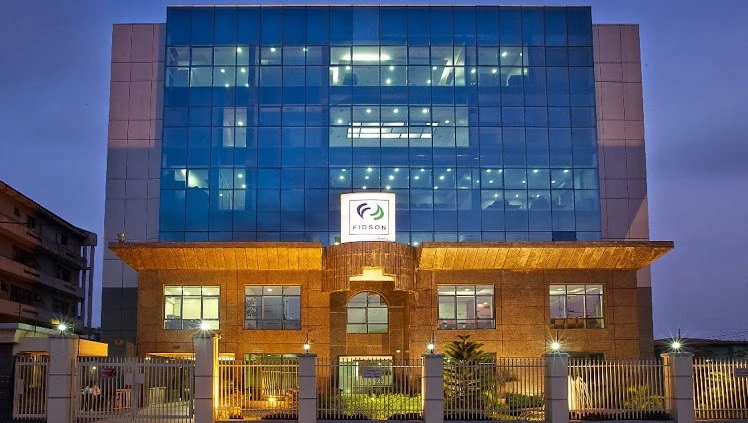Edo Extrajudicial Killing and the Demolishing of Obaseki’s Security Architecture
Edo Extrajudicial Killing and the Demolishing of Obaseki’s Security Architecture
Emeka Nwachukwu
The blood of 16 Nigerians from the Northern part of the country who were transiting from Port Harcourt in Rivers State to their home state flowed painfully in Uromi, Esan North-East Local Government Area of Edo State, on Thursday, March 28, 2025.
From the look of things, even though investigations are currently ongoing, these victims were mere resource-poor farmers, most likely as deprived and angry with the nation’s problems as the mob in whose hands they met their violent and untimely death.
The very sad and unfortunate incident, which has continued to elicit outrage and criticism, has made it manifestly clear that the Edo State security system has collapsed.
An investigative inquest into this terrible incident has, however, revealed that what happened in Uromi is not just an isolated event but a calamity waiting to happen, considering the devastating assault on the meticulously planned security architecture painstakingly put together by His Excellency, Mr. Godwin Obaseki, the former governor of Edo State, working hand in hand with various institutions.
Understanding Edo’s unique positioning as a critical transport hub in the country, one that links the north to the south, whether from the southwest, southeast, or south-south regions of Nigeria, Obaseki during his tenure as the State’s helmsman built a very nimble security system to address these sorts of crisis and bequeathed same to new government of Senator Monday Okpebholo.
The Obaseki Security Model
Obaseki developed this nuanced security model by first leveraging traditional institutions. The governor recognized that an effective and efficient security system cannot be planned without the involvement of local leadership of the communities that you’re trying to secure. On account of this, Obaseki ensured that there was an active traditional council in each local government area (LGA) of the State.
These traditional councils gave the various traditional rulers in each LGA a sense of leadership that was recognised by the government in their communities. These leaders were not just figureheads as they were formally incorporated into the state government’s payroll and every month, they received allowances from the government, empowering them to provide local leadership and ensuring they commanded respect within their communities.
With this foundation of traditional leadership, Obaseki encouraged different communities to nominate operatives, who were then taken for rigorous training, to the Police Academy at Ogida Barracks in Benin, which was rebuilt and equipped by Obaseki.
The training was conducted by the police, DSS, military, and other security agencies, covering intelligence gathering, community policing, firearm handling, and other critical security skills. After the training, the operatives were profiled, their data was entered into a central database, and they were officially inaugurated into what Obaseki called the Edo State Security Network.
These operatives were then equipped with sophisticated handheld walkie-talkies and communication gadgets and were deployed back to the communities they originated from. The idea was that, since security is local, only those who live within a locality can effectively secure it. This structure strengthened the security system, making it more nimble and effective.
The next layer involved strengthening the state’s surveillance system. In addition to surveillance conducted by these well-trained operatives of the Edo State Security Network in their various localities, a network of security cameras was deployed in the first phase across every nook and cranny of Benin City. The feeds from these cameras were transmitted to the Command and Control Center, where large screens allowed trained experts to monitor activities across the state 24/7.
Inside the Command and Control Center, a dedicated call center operated in three shifts of eight hours each, ensuring 24-hour coverage. Professionals at the call center received emergency calls through the state’s emergency numbers, 731 and 112.
Once an emergency was reported, they monitored the situation via the surveillance system and deployed the relevant emergency response team accordingly. If it were a fire emergency, the nearest firefighters were dispatched. If it involved robbery or arson, the closest police or military unit was deployed. For health emergencies, the EMS was activated.
Seamless communication was also ensured through high-end, long-range radio devices (walkie-talkies) that covered every inch of Edo State. This eliminated the need to rely on GSM or mobile networks, which often have poor signals in certain remote areas. Additionally, the security system incorporated highly sophisticated drones capable of detecting human body heat in forests, further enhancing the security operations.
Interagency Collaboration
One of the critical pillars of Obaseki’s nimble security model was strong interagency collaboration. The police, military, DSS, NSCDC, and other security agencies worked together, shared information, and held frequent security meetings. Most importantly, all of these efforts were under the strong leadership of the then Chief Security Officer of the State, Godwin Obaseki, who, every week, convened high-level security council meetings with these agencies and other stakeholders in the security chain.
Security decisions were made based on real-time data, allowing authorities to track and monitor crime trends, including homicide, murder, kidnapping, and other criminal activities.
All of these elements combined to create a resilient and robust security system that made Edo impenetrable to insecurity. As a result, the state was at the time adjudged the safest place to live and do business in the entire South-South region of Nigeria.
The Deluge
Unfortunately, as the 2024 governorship elections in Edo State approached, some political actors within the state orchestrated a nonexistent security crisis, which led to the death of a police officer. They then used this incident as an excuse to deceive the Inspector General of Police (IGP) in Abuja, giving him the false impression that the security structure built by Obaseki posed a threat to the election.
Having been misled by this contrived crisis, the IGP came to Edo State and began dismantling the robust security system put in place by the then governor. The operatives of the Edo Security Network, who had been thoroughly trained and equipped to perform effectively, were disbanded. The communication gadgets handed over to the operatives were confiscated, the surveillance system was set aside, and security agencies in the State were turned against the Chief Security Officer. Everything was thrown into disarray.
This led to a heavily militarized election, followed by the enthronement of a new government and then the complete degradation of the entire security system. The new government sacked the Edo Security Network and replaced them with political actors who had no training whatsoever. All security gadgets were discarded, the Command and Control Center was consigned to the rubbish bin of history, and the strategic security meetings were abandoned. As a result, insecurity reigned supreme across the land.
Edo People Kidnapped, Maimed and Killed
The consequences of this security collapse have been dire. The state has become a safe haven for killings, kidnappings and violent attacks.
Apart from the 16 people who were recently burnt alive, in the past two months alone, at least 50 persons have reportedly died from the mindless killings and brutal attacks by herders and other criminal gangs, with properties worth millions of naira destroyed.
The devastating attack on seven farming communities in Ovia South-West LGA, about a month ago, was said to have claimed at least 24 lives.
Three residents of Okpekpe community in Etsako East LGa, including Batemue Philip Ebo and Christopher Bello, were also brutally killed by suspected herders, a few days after the Ovia incident.
In Edo Central, the blood bath has continued unabated with at least 10 persons killed in various communities from Uromi, in Esan North East, to Ubiajia in Esan South East and Igueben, among others.
In Ekpoma precisely, an 18-year-old boy, identified as Chinedu Abimbor, also met his untimely death when he was shot dead by police officers in Ekpoma, Esan West local council.
Very recently, Fr. Philip Ekweli and 21-year-old major seminarian Andrew Peter, who was later killed by his abductors, were kidnapped in Etsako East LGA of the State.
The National President of the Afenifere Youth Council, Prince Eniola Olajuni, who was kidnapped on his way to Abuja, was released in Ibilo, Akoko-Edo LGA, after 12 days in captivity, highlighting how emboldened criminal elements have become in the state.
This is in addition to the brutality the people have had to endure in the hands of non state actors who have held them hostage, hounding, harassing, intimidating and extorting them. The activities of government-backed thugs under the State Public Safety Response Team (PSRT), reportedly claimed the life of a two-year-old girl who was crushed to death by a commercial driver who had a clash the thugs, while driving at the Ring Road, Benin City.
In terms of insecurity, it has been a perfect storm in Edo State, chaos and brigandage everywhere. Worse still, the supposed Chief Security Officer of the State appears completely disconnected from these tragic events, not even as little as making a public statement himself on the matter. No sense of governance. No empathy. No connection to the people.
A concerned citizen of the State had to even write an article stating that the governor was “dancing on the graves” of the victims of the insecurity caused by his own government as a result of his inability to show empathy and concern to these long-list of victims, their families and communities.
This abandonment by their supposed Chief Security Officer left Edo people feeling completely alone, forcing them to resort to self-help.
The Uromi Self-Justice and Jungle Justice
The sad and unfortunate Uromi incident of March 2025 didn’t happen by accident. It was the result of paranoia, fear, and a deep sense of abandonment by the authorities. The people, feeling left to their fate, took the law into their own hands.
Okpebholo’s handling of the security crisis made it seem as though there was no leadership in the State. The people had concluded that their Chief Security Officer appeared uninterested in their dilemma, and help was not coming anytime soon. As a result, everyone felt the need to take personal responsibility for their own security.
This paranoia drove people to move from one road to another, stopping and checking and scrutinizing everyone and once they saw persons that appeared to look like those they felt were a threat to them and their security, all hell broke loose.
There was no attempt to report to the authorities because, in the minds of the people, those authorities never proved to have existed. Hence, they became the judge, the jury, and the executioners and tragically, 16 innocent people, probably just as poor, vulnerable and scared as they were, were violently and mindlessly killed.
It is imperative to state that the problem goes beyond name-calling, sporadic arrests, and demolishing buildings. These are surface-level responses that will not solve the problem. The fact is that there was a robust, nimble and well coordinated security system established by the immediate past governor, Godwin Obaseki that was completely disregarded and discarded for political reasons.
This is the main problem and to tackle the problem, there must be a deliberate step and urgent need to redeploy the same strategy and tactics to rebuild the security system from the ground up. This includes incorporating locals to provide intelligence, reestablishing a robust surveillance system, deploying advanced technological communication and drone systems, reinstating inter-agency collaboration, and, most importantly, ensuring strong leadership from the Chief Security Officer of the State.
This is the only path to restoring security in Edo State and ensuring the protection of the lives and property of the people of the State.
*Nwachukwu, a journalist wrote in from Lagos.
Emeka Nwachukwu The blood of 16 Nigerians from the Northern part of the country who were transiting from Port Harcourt in Rivers State to their home state flowed painfully in



